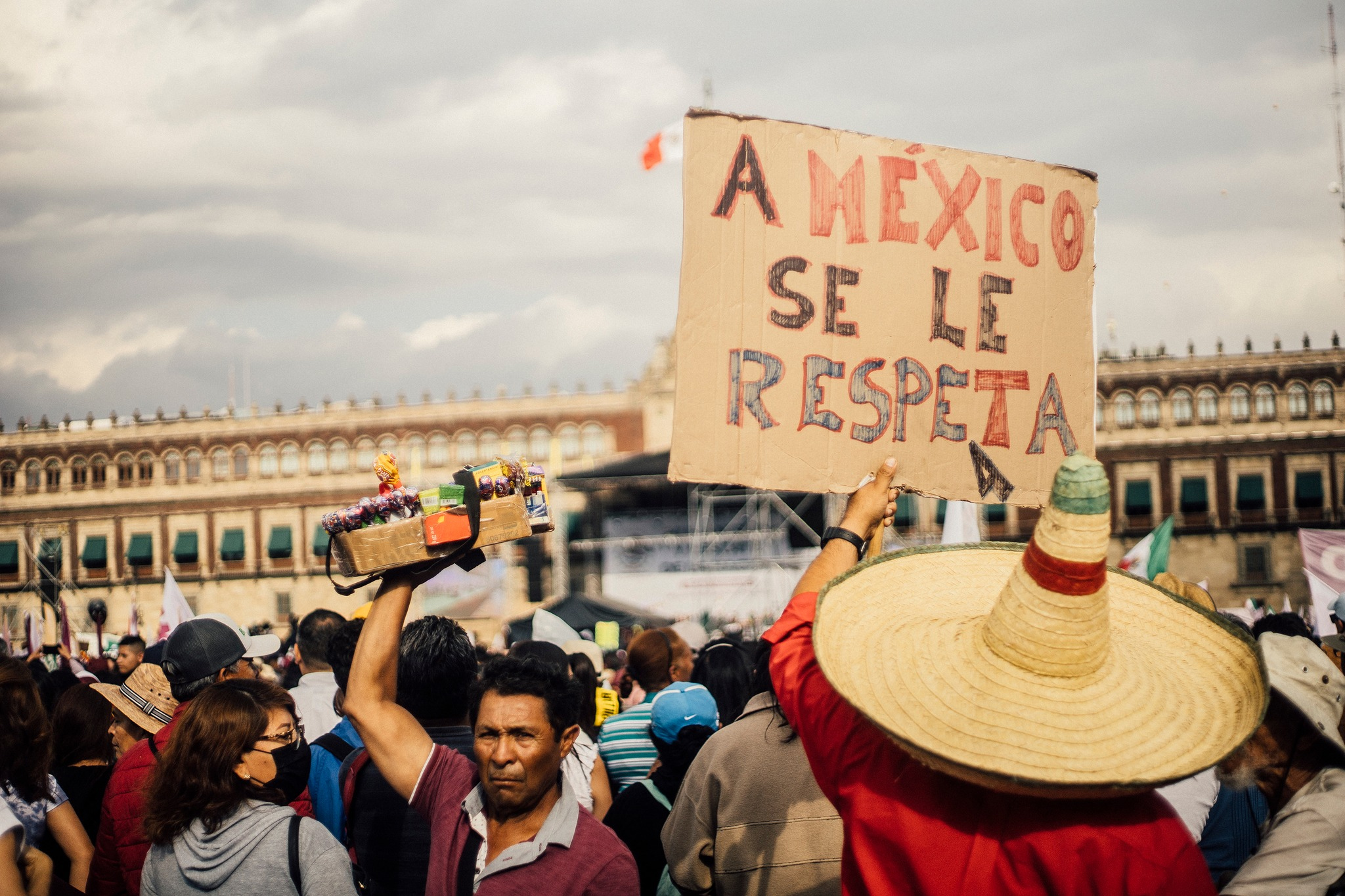Sovereignty Is Never Up for Negotiation
We live in an age of declining empire — a dangerous time. As US power wanes, Washington is more desperate, more violent. Despite worldwide condemnation, it even refuses to stop arming the Zionist entity’s genocidal campaign against the Palestinian people.
This is why sovereignty, never up for negotiation, must be defended more vigorously than ever. For the former colonies and those nations still struggling to be free, self-determination is sacrosanct.
Imperialism has no respect for sovereignty. None. For this reason, Mexican President Andrés Manuel López Obrador’s (AMLO) fierce and unrelenting defense of national sovereignty is a beacon to oppressed peoples all over the world.
Throughout his six-year term, AMLO insisted on Mexico’s sovereignty. He was determined to reassert public control over the country’s wealth in order to redistribute it to the people — Mexican humanism, as he calls it. In stark contrast, neoliberal-era Mexican presidents willingly handed over our resources to transnational capital, enriching themselves by cooperating with the US.
AMLO has also understood that he would need to defend his transformational project from Washington’s power. At this moment, as the country debates the constitutional reform that will radically reshape the judicial branch, AMLO has “paused” relations with the US and Canada over their inappropriate meddling in Mexico’s internal matters.
But he defends not only Mexico’s sovereignty. When a US-backed coup ousted Evo Morales from the Bolivian presidency and guerrillas threatened his life, Mexico sent a plane to literally rescue him. In 2019, when Juan Guaido declared himself Venezuela’s president, the US under then president Trump jumped to support him. Mexico backed Maduro’s legitimacy, halting the coup’s momentum.
Recently, the US once again hastily jumped to recognize the rightist candidate in Venezuela’s election as the legitimate president. But Mexico once again supported Venezuela’s sovereignty, demanding respect for the country’s judicial and electoral institutions against the opposition’s claim that the election was fraudulent.
Bogged down by its own presidential election and the Middle East’s brewing regional conflict, Washington this time deferred to the leadership of Mexico, Brazil and Colombia, whose presidents defended Venezuela’s control over its own election. The US, embarrassed, withdrew its support for the opposition.
But in contrast to these “progressive” leaders, AMLO remained resolute in defending Venezuelan sovereignty and institutions. When Brazilian President Luiz Inácio Lula da Silva proposed new elections and Colombian President Gustavo Petro proposed a power-sharing agreement for Venezuela, AMLO opted out of the tripartite mediation effort. As social movements in the region correctly pointed out, the sort of interference proposed by Brazil and Colombia is an affront to sovereignty, even when it comes from friendly governments.
At the end of the month, AMLO’s term comes to a close. His defense of sovereignty, not only for Mexico but throughout Latin America, will stand as one of his most enduring legacies. For that, we thank him. Gracias!

